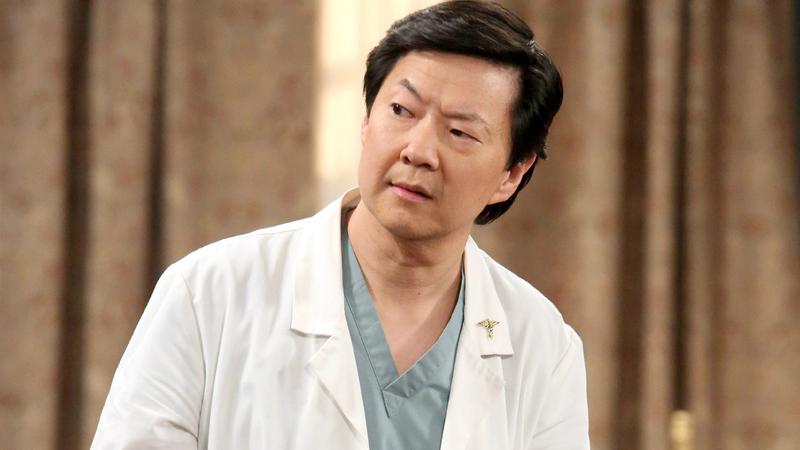DISCLAIMER: I will try my best to be as objective as possible about the different NYC improv schools. One thing I do believe is that each theater has something to offer, and I do think spending some time at each is well worth your time in your improv journey. Also, I won't review the very new Reckless Theater and others like ComedySportz NYC, Improvolution, and Thunderbolt Comedy because I know almost nothing about them.
The Upright Citizens Brigade
They are almost synonymous with NYC improv and have produced some of the hottest stars in the entertainment industry today. Like many, I started here after being blown away by an ASSSSCAT performance after Hurricane Sandy hit. I don't remember anyone else at that show, mainly because I was most entertained by Chris Gethard.
PROS - UCB is a hotbed for talent. Because of its fame, it attracts the best of the best. Some of the best improv shows are at UCB with a rich history of legendary performers (Amy Poehler, Kate McKinnon, Bobby Moynihan, Horatio Sanz, Matt Walsh) and teams (The Swarm, Respecto Montalban, fwand, Mother, Death By Roo Roo). There are some really great teachers, and you'll be surrounded by very funny, talented classmates. This is important when you get serious, network, and create projects with other budding comedians. Of all the schools, they have a reputation for being the most rule-based (e.g. don't ask questions, avoid transaction scenes, don't deny, react from the top of your intelligence, find the first unusual thing, justify) which is arguably a con, but I think the rules are often helpful for good scenework. There is a huge focus on the game of the scene, so a show by UCB-trained veterans looks like a vignette of scripted sketches even though they were all improvising. Finding a truly original game, honing in on it, and really playing it out take a lot of practice, and you'll get that at UCB. They also heavily emphasize the Harold, which is arguably the most difficult form to master but carries over to other forms very well. They also like to teach the Pattern Game opening, which is probably the most difficult opening, but helps generate tons of ideas for premise-driven improv. They also emphasize playing close to yourself, which is a very good skill to have when you want to be truthful and look natural onstage.
CONS - UCB has gotten way too big and impersonal. They've been very successful and the training center has exploded with new students signing up each year, many of them quite ambitious to be TV/film stars. You definitely sense the competitive atmosphere, especially as you advance to the higher levels. The staff is relatively small, so the classes constantly sell-out within minutes of being posted online. Therefore, you should consider taking classes at other places in the meantime since it may be a while until you get into a UCB class. Also, some of the UCB teachers are much better than others. If you don't have a great teacher, you might end up with a distorted sense of what game is and just learn to play empty patterns that don't really create comedy. Also, comparatively, there isn't as much emphasis on good acting and character range. The UCB method definitely falls into the more heady, writer-y, analytical approach to improv. I would recommend having some experience writing and performing sketch comedy, in addition to improvising at UCB. Also, it's very hard to get much stage time there. Sure, you can go to jams, but those alone won't give the requisite reps to get very good. Also, the odds of getting onto a house team are extremely small (less than 1%). You shouldn't get bitter though, since I know many good improvisers who never get on a UCB house team. I've even heard of two former UCB students who constantly got rejected from auditions who just made their own material, put videos up online, and eventually got a show on Comedy Central.
The Annoyance

This was the second place at which I studied. The Annoyance has been around for decades in
Chicago, and almost every serious Chicago improviser has studied there. Fortunately, they opened a theater in Brooklyn, and the community around it has been growing ever since.
PROS - This is the theater that forces you to think outside the box and explore really weird things. It's hard to describe, but I'll do my best although you really should go there to experience it for yourself. It is by the far the least politically correct theater in NYC. They have naked people play with their genitalia onstage (literally), a mother who tries to cure her autistic son by having sex with him (not literally), and Conner O'Malley wreaking havoc like beating up a teammate, ripping off clothes, smashing a chair (literally). The Annoyance gives you the most freedom to not worry about offending anybody. From an improv theory standpoint, they forced me to think about improv at a much more abstract level without the rules. It has a very punk-rock feel where rules and mainstream manners are often ignored, and you're completely free to be as weird as you would like, even from the beginning of the scene. Grounded base reality isn't discussed as much there. There is a much stronger emphasis on developing strong character points of view (or "deal") and strong emotions. Delivery is prioritized over content, so things like physicality, facial expressions, intonation come into play much more than just what the words are. If you want to become a much better actor-performer, study at The Annoyance. Also, there is a huge emphasis on emotionally affecting your scene partner. I know fun is subjective, but I think Annoyance classes are the most fun-oriented and liberating. There is also a very surreal element which can take time adjusting to.
CONS - If you've only trained at The Annoyance, you probably won't be very good at playing game. Also, especially in NYC where most people are UCB-trained, you might have a tougher time doing scenework with other improvisers because The Annoyance approach is so radically different from UCB's or any other theater's. A UCB-er can get annoyed that you never play grounded and never play close to yourself, and might view your "taking care of yourself first" as being selfish and not supporting your scene partner. In an Annoyance set, there are often many unusual things going on at once, so being comfortable with what UCB-ers would call "Crazy Town" is its own skillset. At The Annoyance, you have to be way less heady and make bold choices. Thus, an Annoyance performer would have to dial way back closer to normality when performing at any of the other theaters. Also, there aren't as many time options for courses since they're still growing.
The Magnet

This may be the most iO-like theater in NYC. I haven't taken as many classes there as I would like to so this comparison won't be as comprehensive. Perhaps someone else can chime in.
PROS - If you love improv and want a nurturing, relatively non-competitive environment to develop into the best improviser you can be, you may want to spend more time at this theater. Their staff members seem much more chill, and the people there are all very friendly and easy to get along with. Not many big egos there. There's a much more Zen approach to improv where improv isn't treated as a stepping stone to your SNL audition per se, but as a way of life. If you simply want to devote your time to the art and craft of improv without the temptations of extraordinary fame and fortune in the film industry, I think you could spend a good amount of time at The Magnet and be very happy. However, some individuals (I won't name them but they exist) do see The Magnet as a stepping stone to UCB. Because The Magnet provides good training with a nurturing feel, you can get a lot better very quickly at The Magnet before you move onto another stage. Additionally, they have some of the best instructors in NYC. In fact, pretty much all of their instructors are really good. You can also mentor newer improvisers in their Big Sib program where I think you can take classes for free or at a huge discount. You can also re-take classes for 50% off the retail price. Also, Trike performs some of the most action-packed two-prov you'll ever see.
CONS - Because they are very nurturing and concerned about the well-being of all their students and audience, they are the most politically correct theater. This can very well be a huge pro instead of a con, but I wasn't sure where else to put this. Even if you're a decent person, you'll probably have to make sure your filter is on. That's not to say that sex, drugs, and violence are never mentioned, but some things that would be embraced at The Annoyance or even UCB would not be welcomed at The Magnet (e.g. nudity, rape scenes, Nazi sympathy, racist remarks, very graphic sexuality and violence). In addition, if you do happen to be someone who sees improv mostly as a way to network your way into getting a lucrative TV or film gig, you should probably spend more of your time at UCB. I don't see this as being as big of an issue for DIY folks who would rather create their content independently.
The Peoples Improv Theater

Honestly, I have not spent a ton of time at the PIT, so take all of this with a grain of salt. I think other people would be much more qualified to give it a proper rundown.
PROS - By far the biggest perk is the amount of stage time offered to budding comics. This is pretty huge, since you can't only take classes and expect to become the best performer you can be. You don't even have to be a student there to get stage time. The PIT has three stages, all pretty nice. They also have a 10,000 Hours program and drop-in classes that are very affordable, sometimes completely free. The PIT also has a pretty sizable community. I would say they're in between UCB and Magnet in terms of size and commercial ambition. They don't really have a unifying improv philosophy, maybe except for game, and seem much more eclectic than the other theaters.
CONS - I've heard that the quality of instruction is not the best. There certainly are good teachers, but there are also a lot of mediocre ones. I've met some PIT-trained folks who went through the whole curriculum and were shockingly bad improvisers. I've also met PIT-trained folks who are really amazing. There seems to be much more variance, so make sure to select your teachers at the PIT very carefully. Also, I've never met the founder, Ali Farahnakian, but he is a very controversial, extremely polarizing figure in the improv world. There are lots of stories about him, but let's just leave it at that for now. I will say that he is an outstanding improviser and is probably the most business-savvy improv guru (owns Simple Studios and the Pioneers bar in addition to the PIT and PIT Loft).
 As a public school student during the "War on Drugs", I listened to police officers and health
As a public school student during the "War on Drugs", I listened to police officers and health 








